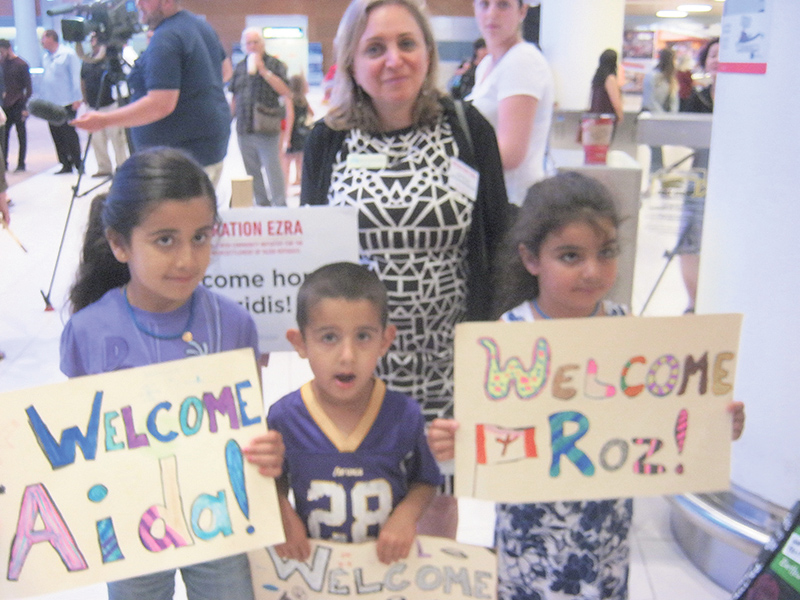Canadian Jews can take some pride in Nadia Murad’s recent acceptance of the Nobel Peace Prize, but we must also rededicate ourselves to the cause for which she stands.
Murad is a Yazidi, a people that bear several similarities to our own. Like our community, Yazidis are monotheists who trace back to the ancient Middle East. Like us, Yazidis endured centuries of persecution, but still created an enduring and vibrant culture. And as with our people, all this changed in a heartbeat.
In the case of the Yazidis, the threat came from ISIS. ISIS’s philosophy marries religious fundamentalism, absolute theocracy and monstrous viciousness. It unleashed a shocking orgy of violence on anyone who did not conform to its whims.
When ISIS forces captured the Sinjar region in northern Iraq four years ago, they discovered the perfect prey: a defenceless, non-Islamic community that went largely unnoticed by the outside world.
The butchers set to work immediately, literally chasing some 40,000 Yazidi civilians up a mountain. Their food and water quickly ran out and their situation grew dire. Then-U.S. president Barack Obama – who was reluctant to use force, particularly in the Middle East – quickly air-dropped food and medicine for them, while also authorizing military strikes to protect them.
The Yazidis needed that protection. ISIS had already murdered thousands of Yazidi men, before seizing their mothers, widows and daughters as sex slaves. Many of these women and girls were sold or passed from one ISIS fighter to another.
Murad was one of them. Somehow, she managed to escape. Even more courageously, she told her story publicly. Two years ago, at the age of 23, the UN named Murad its first goodwill ambassador for the dignity of survivors of human trafficking.
Unsurprisingly, many of us felt an instant bond with the Yazidis, given our common, tragic experience. The fact that the Yazidis faced genocide while we were welcoming large numbers of Syrian refugees also gave some Canadian Jews hope that this was a moment when we really could help.
READ: KAY: THE YAZIDIS OF TODAY ARE THE JEWS OF YESTERDAY
Adding to the urgency was an attitudinal change towards war and sex. Whereas sexual assault was once dismissed as a “boys will be boys” byproduct of war, systemic sexual violence in armed conflicts is now increasingly viewed for what it is: a war crime. This made the Yazidi plight even more compelling.
With shuls already sponsoring Syrian refugees across Canada, some Canadian Jews stepped up for the Yazidis. Through Operation Ezra, for instance, Winnipeg’s Jewish community raised over $700,000 and privately sponsored 55 Yazidi refugees. Thirteen more will join soon and others will come to Manitoba later this year. Operation Ezra is also partnering with other faith communities to support over 250 government-sponsored Yazidis who are struggling to integrate into Canadian society. Other impressive efforts emerged in Toronto, Montreal and elsewhere.
But it’s not enough. This is a moment to live Rabbi Tarphon’s famous dictum: “You are not obliged to complete the work, but neither are you free to desist from it.”
Hundreds of thousands of Yazidis have been displaced and are now spread across the Middle East, scarred from the trauma they endured, just as we once sat scattered across a war-torn Europe. Few were there for us then, but today we can be there for Yazidis like Murad.
This is hardly the first column in the Canadian Jewish News calling on our community to mobilize in support of the Yazidis, but let it be the last. The Yazidi cause has the potential to cut across political lines and unite our fractured community in an urgent act of sheer chesed.
Our community leadership should therefore put their shoulders into this pressing cause and lead a massive campaign of fundraising, advocacy and volunteerism. As Canadians and as Jews, we must bring our Yazidi brethren to the safety and security of Canada, and assist those already here, who continue to suffer from unspeakable trauma.
